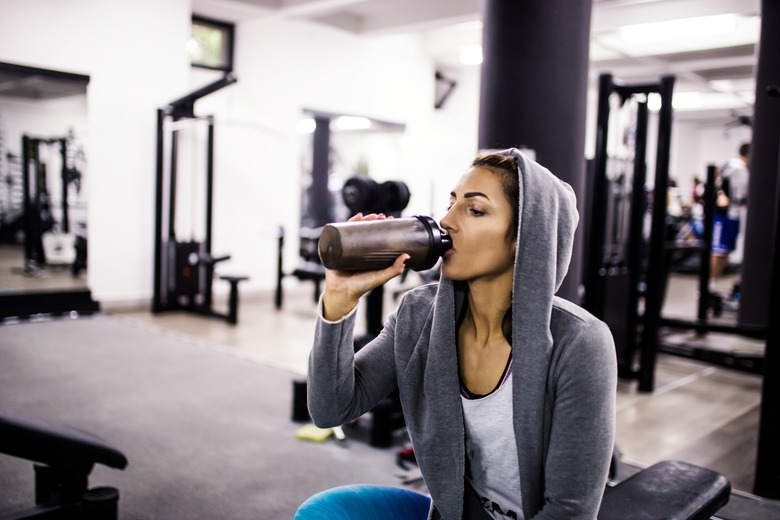Bodybuilding Mom Of Two Dies From Too Much Protein
There really is such a thing as eating too much protein — and supplements are surely something to approach with caution. Meegan Hefford, a 25-year-old bodybuilder and mother of two from Western Australia, died on June 22 after consuming an excess of protein from shakes, supplements, and other protein-heavy foods.
She was found alone and unconscious in her apartment on June 20 and was immediately transported to the hospital. Though doctors attempted to revive her, she was declared brain-dead two days later.
Hefford was on track to compete in a bodybuilding competition this upcoming September. In preparation, she'd been increasing her protein intake and severely restricting her diet in an attempt to manipulate her physique for the cutthroat event. This wasn't the first time she'd tried this kind of routine — Hefford had been competing since 2014, seemingly consequence-free.
Unbeknownst to Hefford, however, the bodybuilder suffered from an invisible condition called urea cycle disorder — a genetic condition wherein the body is deficient in one or more of the enzymes it needs to break down protein. When a person who suffers from the disorder takes in too much protein, it can result in death due to a rapid buildup of ammonia in the blood and fluid in the brain — which is exactly what happened to Hefford.
Symptoms of the disorder include agitation, lethargy, and disorientation. These also happen to be symptoms of overexercise, which is perhaps why the condition remained undiagnosed. Hefford had begun working out at the gym twice per day, an extreme regimen condoned by some bodybuilding plans that often results in some confusion and fatigue.
"I said to her 'I think you're doing too much at the gym, calm down, slow it down," recalled Hefford's mother, Michelle White. White expressed concern to her daughter, but to no avail. She had no idea the extent to which Hefford had been using protein and supplements until after the tragedy, when she discovered half a dozen supplement containers in her daughter's deserted apartment.
"I couldn't believe what the doctors were telling me, she was dying," White explained to Perth Now. "I said, 'You have to give her more time,' because she didn't look sick, she looked beautiful."
The reality of protein supplements is that they're not as tightly regulated as other kinds of drugs. The labels always warn to first seek the advice of a doctor before consuming, but as Hefford's mother pointed out, "How many young people actually do?"
Even for an individual without a disorder, an excess of protein can have its consequences, and it's wise to consume the supplements in moderation (if at all).
